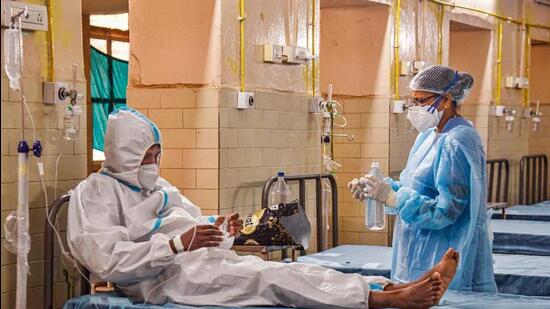
The National Institute of Virology in Pune said on Wednesday that it has successfully isolated the monkeypox virus from the clinical specimen of a patient, overcoming a key hurdle for any future vaccination plan since this now allows researchers in the country to begin working on an inoculation as well as test kits.
At present, the sole licensed vaccine for monkeypox is the one made for smallpox by a Danish company, and the live virus on which it is based – the variola virus, a family of pathogens to which both diseases belong – is stored only at two locations, the Centers for Disease Control lab in Atlanta, Georgia and the State Research Center of Virology and Biotechnology (VECTOR Institute) in Koltsovo, Russia.
“The isolation of the monkeypox virus will help in the development of diagnostic kits and also vaccines in future. For smallpox, live attenuated vaccine was successful for mass immunisation in the past. Similar approaches on new platforms can be tried for making vaccines,” said Dr Pragya Yadav, a senior scientist at NIV Pune.
She added that the virus isolate will also researchers study its behaviour and how it infects, helping work on containment measures.
Monkeypox virus is an enveloped double-stranded DNA virus with two distinct genetic clades—the central African (Congo Basin) clade and the West African clade.
The fluid inside skin lesions of an infected patient was used to isolate a live virus, since this fluid has concentrations of the pathogen.
Health experts explained that pathogen isolation is challenging and requires a sophisticated facilities to ensure there is no contamination and scientists do not het infected.
“Taking the process of virus isolation to vaccine production is even more complicated because that requires really high bio-safety levels. Only few facilities in the world have this,” said Dr Giridhar Babu, professor and head life course epidemiology at Public Health Foundation of India.
“They did it in case of Covid-19 where the virus was isolated at NIV and it production was initiated by Bharat Biotech. They can follow the same process but not every vaccine works in the same way,” he added.
NIV Pune is certified as a Bio Safety Level 4 (BSL 4) laboratory, which allows it to handle live viruses.
Wednesday’s development harks back to the early days of the pandemic when NIV Pune isolated the Sars-CoV-2, and the Indian Council of Medical Research (ICMR) then entered into an agreement with Bharat Biotech to produce a vaccine, which eventually was branded as Covaxin and is now one of the two most widely used in the country.
The lab also entered into an agreement with Cadila Healthcare, sharing the details of the Sars-CoV-2 pathogen that allowed the Gujarat-based company to create its vaccine, the ZyCoV-D.
India is among the world’s pharma powerhouses, with some of the biggest vaccine producers by volume, such as Serum Institute of India and Biological E churning out millions of doses of various inoculations every month.
- aum
-

 1
1


3175x175(CURRENT).thumb.jpg.b05acc060982b36f5891ba728e6d953c.jpg)
Recommended Comments
There are no comments to display.
Join the conversation
You can post now and register later. If you have an account, sign in now to post with your account.
Note: Your post will require moderator approval before it will be visible.